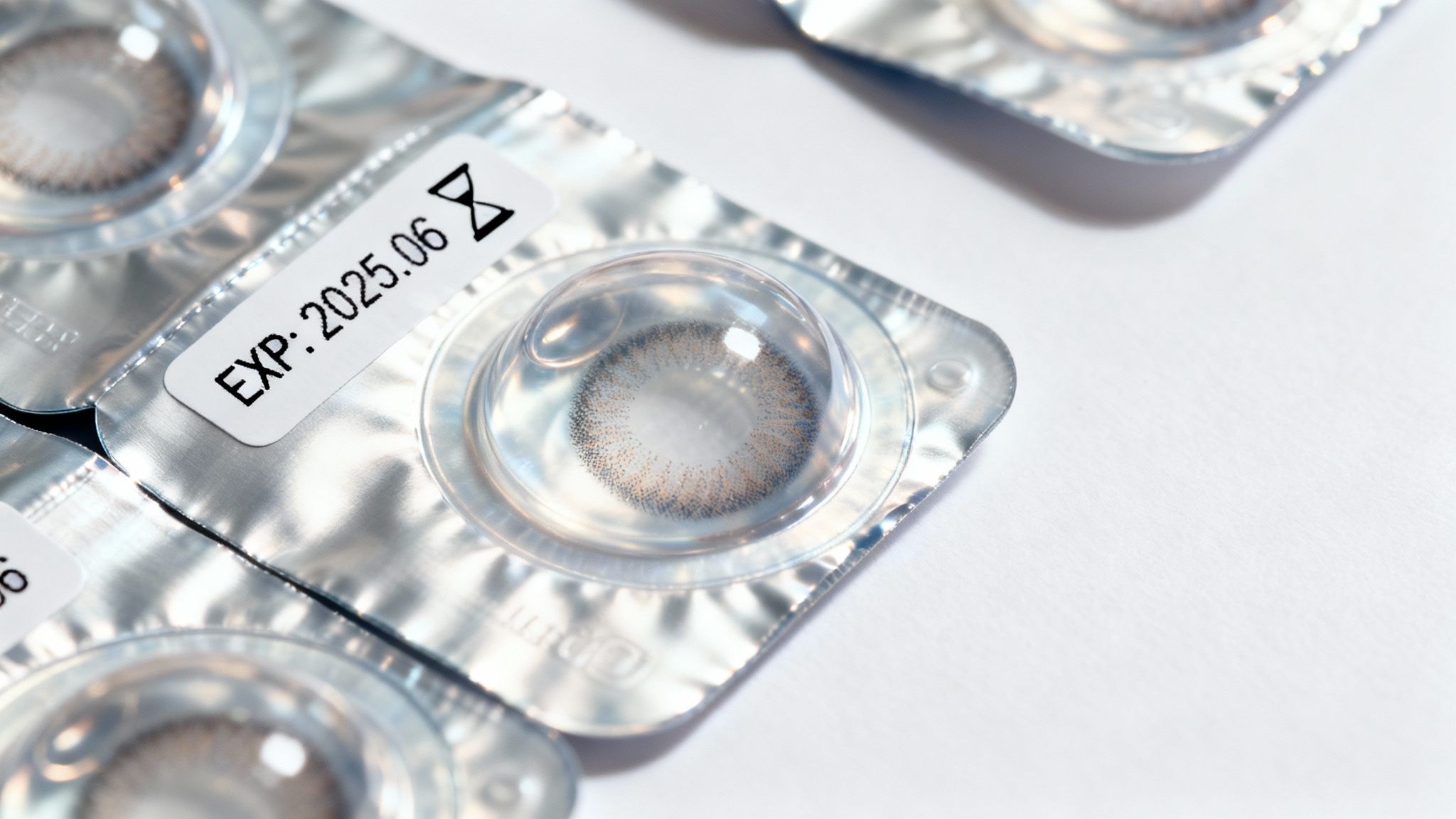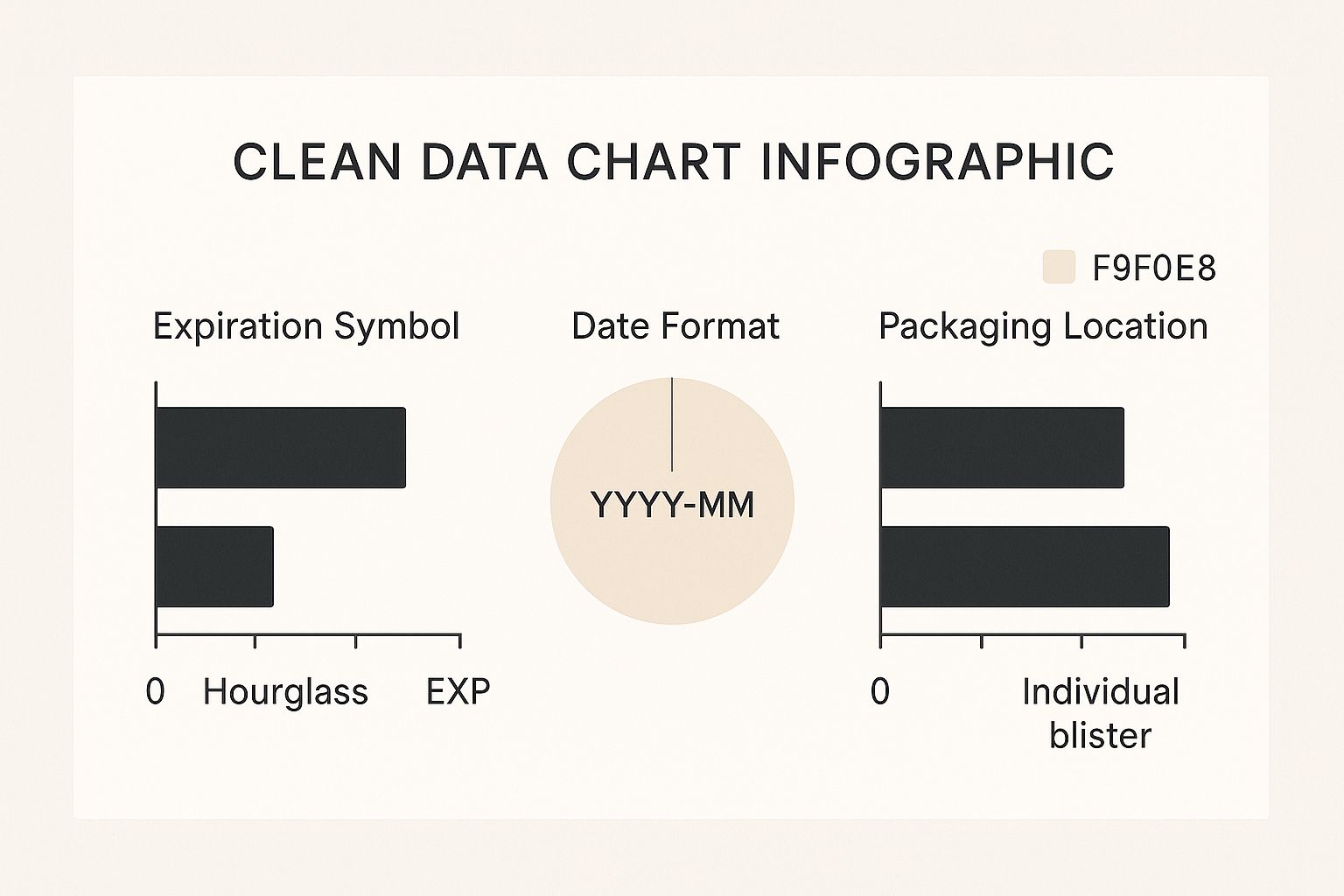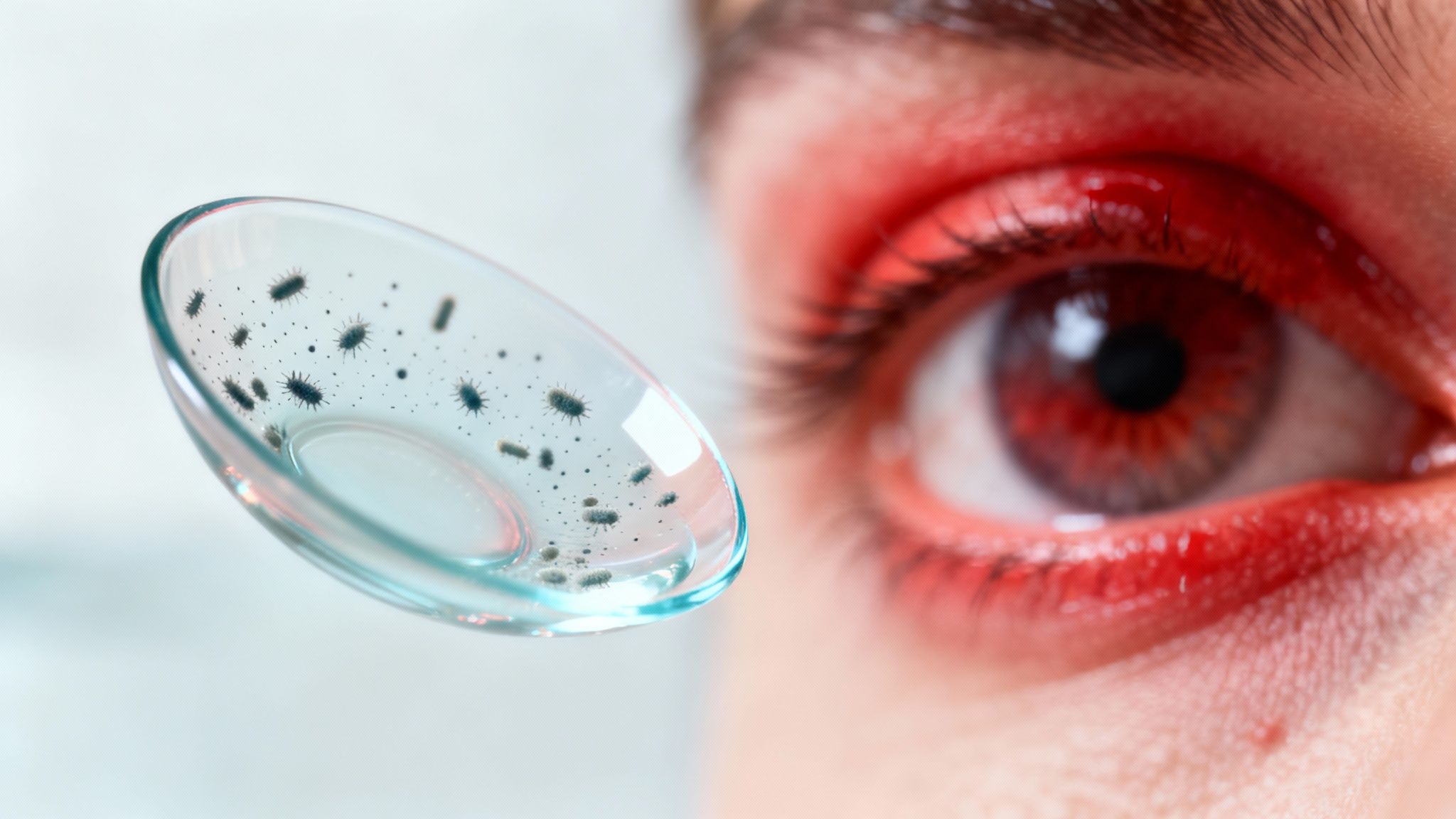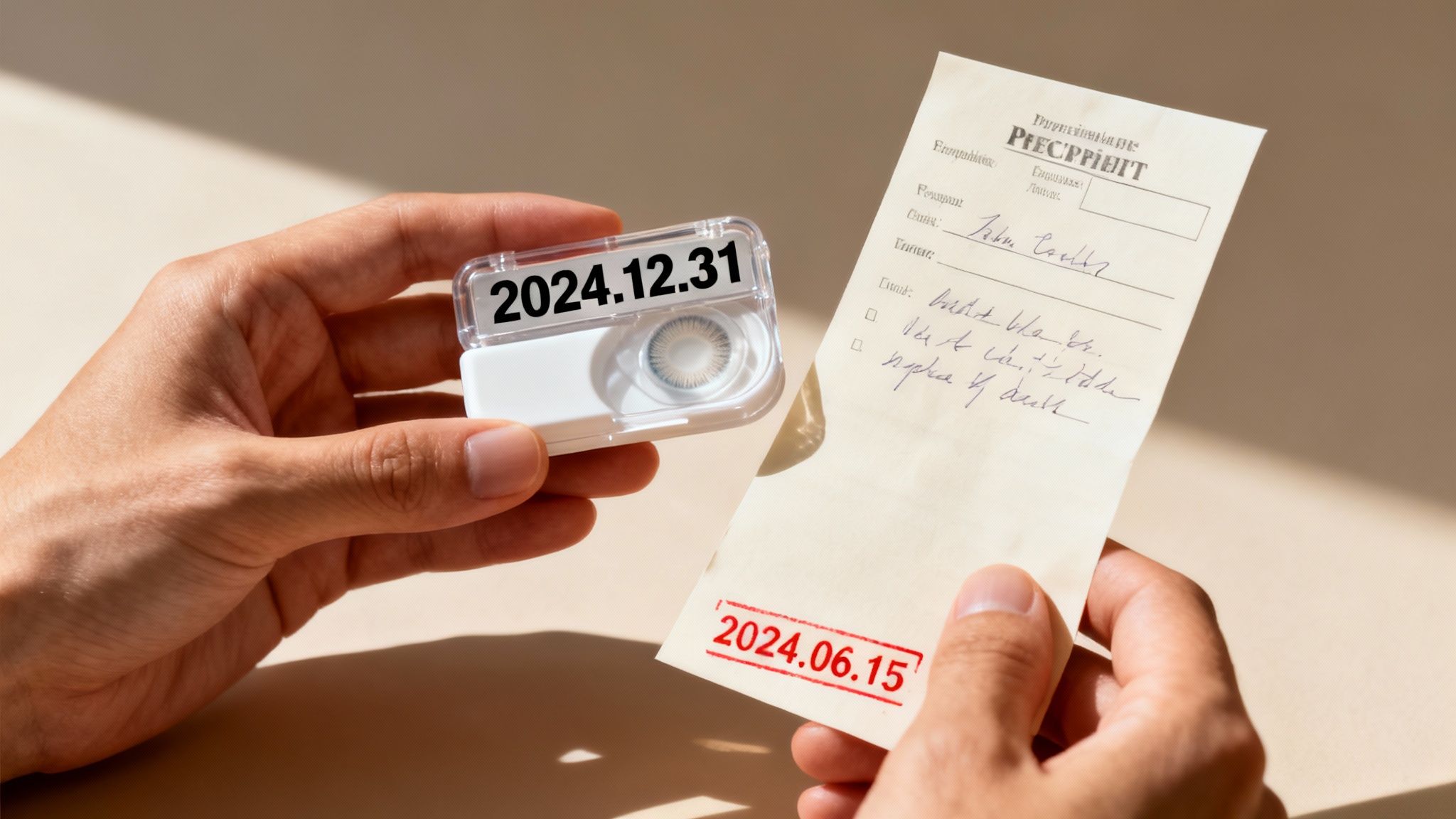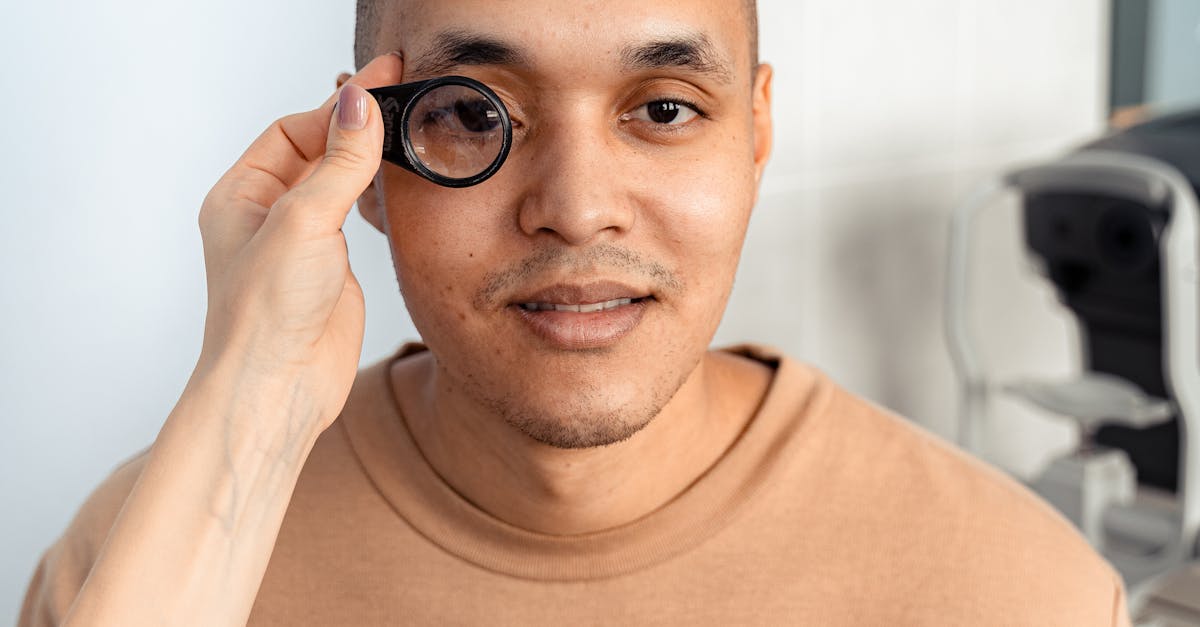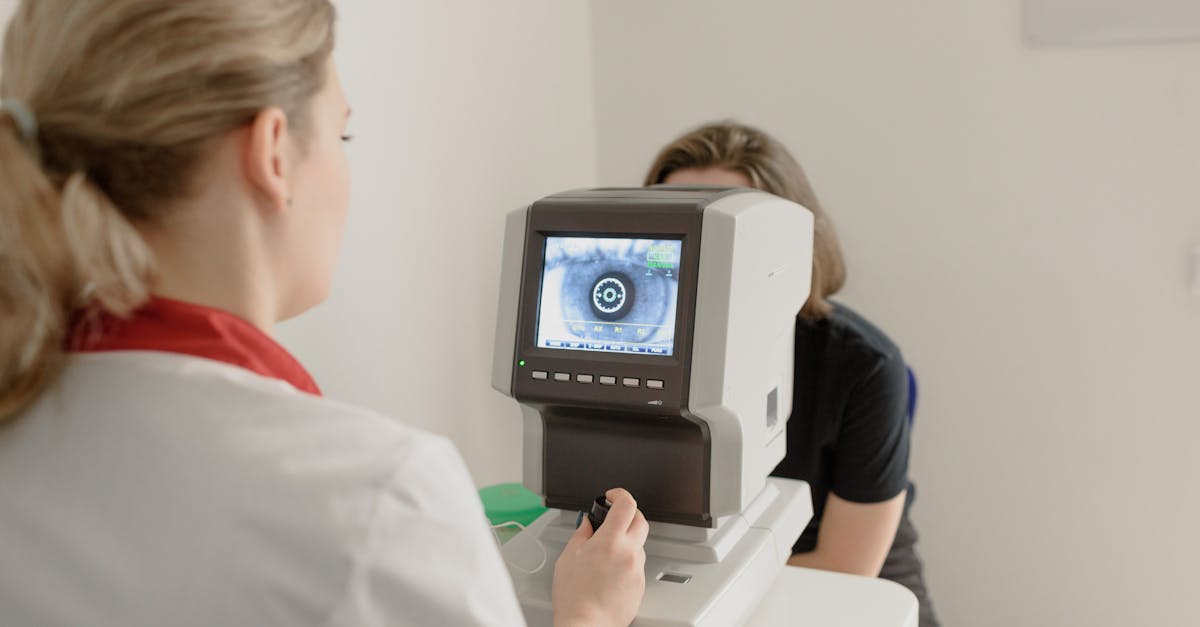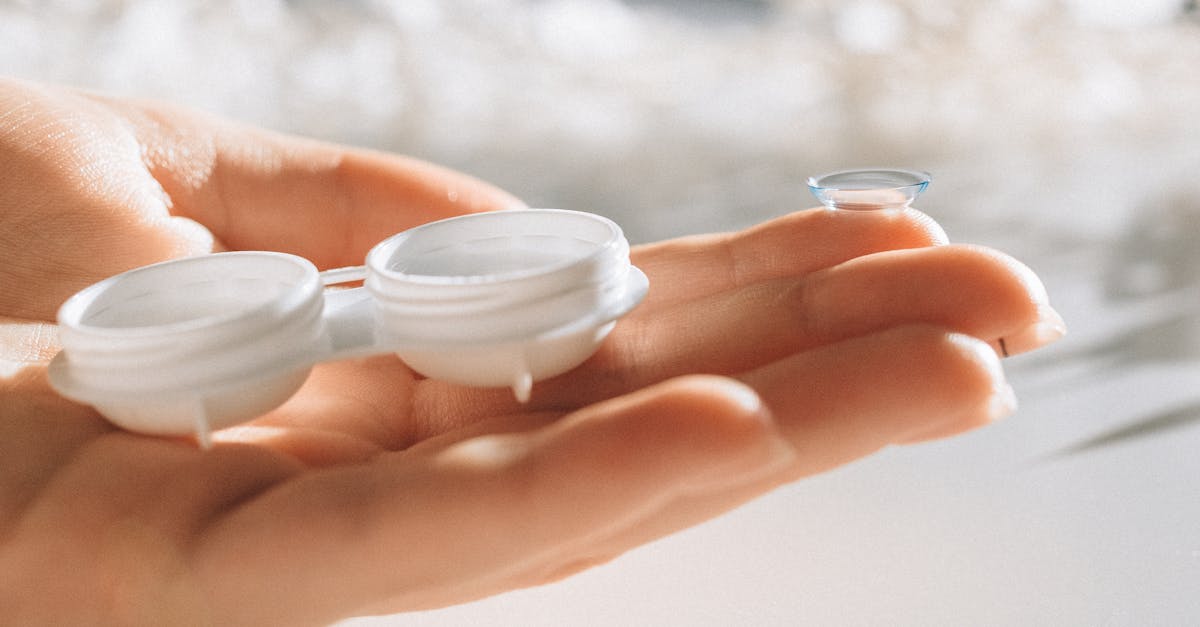Let's clear up a common question right away: yes, contact lenses absolutely expire. That date printed on the box isn't just a friendly suggestion—it’s a critical deadline for your eye health. If you're a contact lens wearer here in Glendale Heights, understanding what this date really means is a simple but vital part of keeping your vision safe and clear.
Why Do Contact Lenses Have an Expiration Date?
The expiration date on your contacts is all about one thing: sterility.
Think of the foil-sealed blister pack holding your lens. It’s essentially a tiny, perfectly sterile environment. Inside, the lens floats in a saline solution that is completely free of germs and contaminants. The expiration date is the manufacturer's guarantee that the seal on that little package will remain airtight and the solution inside will stay pure.
This guaranteed sterile period is usually somewhere between one to four years from the date the lenses were made. After that date, the integrity of the seal can start to break down. Even microscopic failures can allow bacteria to creep in, turning a safe medical device into a potential risk for your eyes.
This rule applies to all types of lenses, no matter how often you replace them. To explore your options further, see our breakdown of daily disposable vs. monthly contact lenses.
How to Read the Dates on Your Contact Lens Box
Figuring out the expiration date on your contact lenses can feel a bit like cracking a code, but it's actually pretty straightforward once you know where to look.
First, check both the outer box your lenses came in and the individual foil-topped blister packs. You're looking for an abbreviation like 'EXP' or, more commonly, a small hourglass symbol (⌴). This little symbol is the universal sign for "use by."
Next to that symbol, you'll see a date, which is almost always printed in a YYYY-MM format. So, if you see 2026-09, it means your lenses are good to go until the end of September 2026. Think of that date as the manufacturer's guarantee that the sterile saline solution and the lens inside are safe and stable.
The blister pack itself is the key here. It creates a completely sterile environment, but over time, that seal can degrade. This lets oxygen in and can compromise the saline solution, making it less effective and potentially allowing bacteria to grow. If you want to dive deeper into keeping your lenses safe, check out our guide on how to properly store contacts.
This infographic gives you a quick visual guide on what to look for:
Once you know the symbols, you'll see how easy it is to confirm your lenses are safe to use. It’s all standardized to help you protect your eyes.
The Real Dangers of Using Expired Contact Lenses
So, what’s the big deal about using expired contacts? It might seem harmless, but you’re taking a serious gamble with your eye health every time you do it. The real problem isn't the lens itself degrading, but the sterile environment it lives in.
Think of the saline solution inside the blister pack as a protective bubble. That expiration date is the manufacturer's guarantee that the bubble—and the seal keeping it intact—is doing its job perfectly. Once that date passes, all bets are off.
Over time, that seal can become less effective, creating tiny, invisible pathways for bacteria to invade. The once-sterile saline solution can quickly turn into a petri dish, contaminating the lens with nasty organisms.
This contamination puts you at direct risk for painful and potentially vision-threatening eye infections, like microbial keratitis. It’s just not worth the risk. A huge part of wearing contacts safely is understanding how to prevent common contact lens infections in the first place.
To put it in perspective, let's look at a side-by-side comparison.
Risks of Using Expired vs. Fresh Contact Lenses
| Feature | Fresh Contact Lenses (Within Expiry) | Expired Contact Lenses (Past Expiry) |
|---|---|---|
| Sterility | Guaranteed sterile and sealed from contaminants. | Seal may be compromised; high risk of bacterial contamination. |
| Lens Material | Stable, providing optimal oxygen flow and comfort. | Material may degrade, becoming brittle and less breathable. |
| Solution Integrity | pH-balanced and isotonic for safe contact with the eye. | Solution's pH can change, causing irritation and stinging. |
| Infection Risk | Extremely low when handled with proper hygiene. | Significantly increased risk of infections like keratitis. |
| Comfort | Designed for maximum comfort and clear vision. | Can cause redness, irritation, blurry vision, and pain. |
As you can see, the differences are stark. Sticking to fresh, in-date lenses is a non-negotiable part of protecting your vision.
Be on the lookout for any warning signs of infection. If you notice sudden redness, persistent pain, sensitivity to light, or blurry vision, take your lenses out immediately and see an eye doctor in Glendale Heights. Your eyesight is too precious to risk.
Lens Expiration vs. Prescription Expiration: What’s the Difference?
It’s easy to get these two dates mixed up, but they serve completely different purposes. Both are incredibly important for keeping your eyes safe and your vision sharp.
Let's break them down.
The Date on the Box
First, you have the lens expiration date. This is the date printed directly on the contact lens box and individual blister packs. It's set by the manufacturer, and it’s all about sterility. Before this date, the company guarantees the sealed blister pack is sterile and the lens inside is safe to put in your eye. After that date, that guarantee is gone.
The Date on Your Prescription
Then there's your prescription expiration date, which is determined by your optometrist. Think of this as a regular check-up for your eyes. This date ensures your prescription is still providing the best possible vision correction and, more importantly, gives your eye doctor a chance to check on the health of your eyes.
In the United States, the federal Contact Lens Rule generally requires prescriptions to be valid for one to two years.
This is why we legally can't sell you contact lenses with an expired prescription here in Glendale Heights. It's not just a rule; it's a critical health checkpoint. You can dive deeper into understanding your contact lens prescription in our detailed guide.
Smart Habits for Safe Contact Lens Wear
It’s one thing to know that contacts expire, but it’s another to build the daily habits that truly protect your vision. When it comes to safe and comfortable wear, a simple, consistent routine is your best friend.
First, think about storage. Keep your contact lens boxes in a cool, dry spot that doesn’t experience big temperature swings—a bedroom closet or a drawer is much better than a steamy bathroom cabinet. The moment you get a new supply, make it a habit to glance at the expiration dates and toss any that are already expired.
Above all, stick to the replacement schedule your eye doctor gave you. Whether you wear dailies, two-week, or monthly lenses, don’t try to stretch them out.
Your cleaning and replacement schedule isn't just a suggestion—it's your number one defense against eye infections. When it comes to your vision, never cut corners on hygiene.
Think of us as your partner in keeping your eyes healthy. If you’re ever unsure about your schedule or have questions, a professional contact lens fitting in Glendale Heights is the perfect way to get answers and ensure your lenses are working for you, not against you.
Your Local Glendale Heights Vision Experts
So, what's the takeaway? It’s simple: your contact lenses have an expiration date for a very good reason, and using old lenses just isn't worth the risk. Your prescription also needs to be up-to-date to keep your vision sharp and your eyes healthy.
For everyone here in Glendale Heights, from folks out by the Glendale Lakes Golf Club to families all along North Avenue, we know that clear, comfortable vision is everything. That’s what we focus on at iDoctor—blending top-tier professional care with a friendly, personal touch.
Why not take a quick second right now to glance at the expiration dates on your contact lens boxes? If a date has passed, or if you know you're overdue for a check-up, it’s a perfect time to book one of our detailed eye exams in Glendale Heights. We’ll get your prescription renewed and make sure everything looks great.
Thinking about giving your eyes a break from contacts? We can help with that, too. We have a fantastic, hand-picked collection of designer eyeglasses in Glendale Heights, including stunning frames from Cartier, Gucci, and Tom Ford that will match your personal style perfectly. Your eyesight is one of a kind—let's work together to keep it that way.
FAQ About Contact Lenses in Glendale Heights
We get asked a lot of great questions about contact lenses at our Glendale Heights boutique. Here are the answers to a couple of the most common ones we hear, with some practical advice to keep your eyes healthy.
What should I do if my last pair of contacts is expired?
It happens—you reach for your last pair of contacts, only to see the date on the package has passed. Whatever you do, don't wear them. Not even for a little while. The best thing to do is switch to your backup eyeglasses right away. We understand that life gets busy, which is why we offer efficient, 30-minute eye exams. Give our office a call, and we'll get you in for a new contact lens fitting as soon as possible.
Does iDoctor accept vision insurance for contact lenses?
Absolutely. At iDoctor, we want high-quality eye care to be accessible. We accept all major vision insurance plans for our services, including contact lens fittings and exams, as well as for purchasing your supply of contact lenses or a new pair of designer eyeglasses. We’re happy to help you understand and maximize your benefits.
Can I buy Gucci glasses near me at iDoctor?
Yes, you can! We are proud to offer a curated selection of luxury eyewear, including the latest styles from Gucci. Whether you're looking for prescription eyeglasses or sunglasses, our team can help you find the perfect pair that reflects your style right here in our Glendale Heights boutique.
Ready to update your prescription or find the perfect pair of frames? Visit iDoctor for a personalized eye care experience in Glendale Heights.


